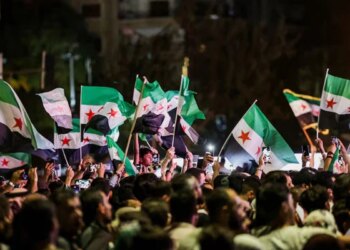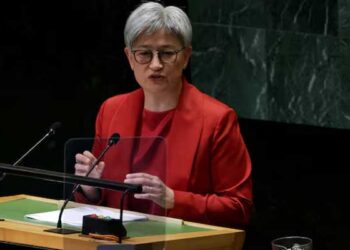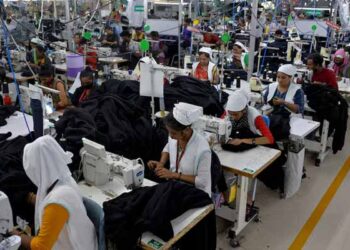Select Language:
Cuba’s Diaz-Canel Faces U.S. Sanctions Amid Human Rights Concerns
WASHINGTON: On Friday, the United States implemented its first set of sanctions against Cuban President Miguel Diaz-Canel, accusing him of contributing to “the regime’s cruelty against the Cuban people.” This move is part of a broader initiative by former President Donald Trump’s administration aimed at exerting additional pressure on the Cuban government.
Secretary of State Marco Rubio announced via a post on X that there will be new visa restrictions placed on Diaz-Canel and several other high-ranking officials. This announcement coincided with the four-year anniversary of significant anti-government demonstrations that took place in Cuba.
In July 2021, the island witnessed widespread protests, as thousands voiced their frustrations over shortages of basic necessities and deteriorating economic conditions. These protests resulted in hundreds of arrests, one reported death, and numerous injuries, marking the largest civil unrest since Fidel Castro’s communist revolution in 1959.
According to the State Department, the sanctions are directed at “key regime leaders… involved in egregious human rights abuses.” Among those sanctioned are Defence Minister Alvaro Lopez Miera and Interior Minister Lazaro Alberto Alvarez Casas. The U.S. is also taking steps to target Cuban judicial and prison officials connected with the “unjust detention and torture of July 2021 protestors.”
In his statement, Rubio highlighted the disparity faced by the Cuban people, who struggle with shortages of food, clean water, and healthcare, while the regime prioritizes funding for its insiders.
Cuban Foreign Minister Bruno Rodriguez criticized these sanctions on X, asserting that the United States cannot “bend the will of its people or leaders.” Earlier in May, Cuba’s foreign ministry summoned the U.S. envoy in Havana to lodge a complaint about American interference in its internal affairs.
The U.S. has maintained a trade embargo against Cuba for over sixty years.
Political Prisoners
Rubio further used X to accuse the Cuban government of torturing dissident leader Jose Daniel Ferrer and demanded “proof of life” for him. He emphasized that the U.S. calls for the immediate confirmation of Ferrer’s safety and the liberation of all political prisoners.
According to U.S. reports, around 700 individuals remain incarcerated for participating in the July 2021 protests, while human rights organizations estimate that the figure may be between 360 and 420. Some protesters have been released recently after serving their sentences, but others, including Ferrer, who leads the Patriotic Union of Cuba (UNPACU), were freed in January as part of a Vatican-mediated arrangement that followed former President Joe Biden’s decision to remove Cuba from the terrorist sponsorship blacklist.
However, Ferrer’s parole was revoked at the end of April, sparking criticism from Washington, especially as the Biden administration has reinstated Cuba on the blacklist following Trump’s return to power.
Additionally, the State Department has added the “Torre K,” a recently inaugurated 42-story hotel in Havana, to its restricted list of entities that Americans cannot engage with, aiming to prevent U.S. funds from supporting the Cuban government’s oppressive practices. The new hotel has attracted criticism for the significant investment made by the government amid a downturn in tourism.






